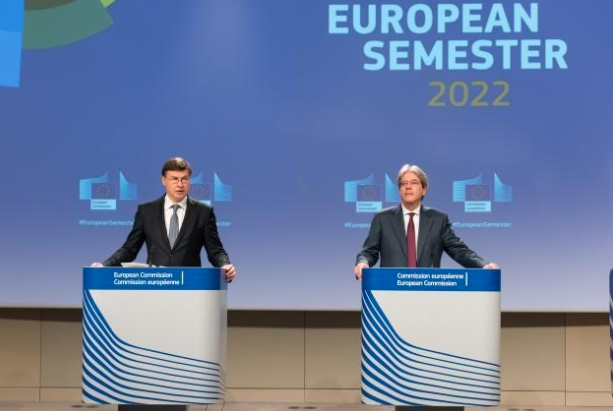
European Semester 2022 Springpackage: our takeaways
May 31, 2022
Last week, the European Commission published this year’s European Semester Spring Package. It takes into account the economic consequences of the invasion of Ukraine by Russian military forces, which are yet another demonstration that we urgently need to halt our dependency on fossil fuels not only from Russia but overall. To this end, the Commission published the REPowerEU plan, which aims to address the global energy market disruption caused by the war through energy saving, diversification of energy supplies, and accelerated roll-out of renewable energy to replace fossil fuels in homes, industry and power generation. In the 2022 Spring Package, each Member States received recommendations and guidance with regards to energy security, highlighting the need for more reforms and investments towards cleaner energy sources, in line with the REPowerEU strategy. From the guidance of this dedicated CSR, the Commission invites Member States to propose a new chapter in their Recovery and Resilience Plans (RRPs), highlighting how they plan to achieve the objectives of the REPowerEU strategy.
Mapping a trajectory on how to reform fiscal rules to ensure financial stability
The Commission also announced that the general escape clause of the Stability and Growth Pact will be extended through 2023. This clause, first introduced as a response to the financial consequences of the COVID-19 crisis, is now deemed necessary in the context of the risks for the economic outlook of Europe due to the war in Ukraine. This is now the third year in a row that the public finance surveillance is not applied, indicating that the EU fiscal rules are not fit for the current nor upcoming challenges. The review of the fiscal framework is already ongoing for years and the discontent among policy makers about the Pact is widely shared. The Commission should take its responsibility and map out a trajectory on how to reform the fiscal rules so as to assure fiscal sustainability with an ageing population while at the same time accelerating the green transition.
Green budgeting tools to adress climate change
The Commission further stated that the previously foreseen investment needs of EUR 520 billion per year are now “at the lower end of the actual needs” due to the needed acceleration of the energy transition. A concrete understanding of the financial needs to deliver the objectives of the Green Deal is not an option anymore; defining the sustainable investment gap for each Member State and the EU as a whole is a necessity. Additionally, the Commission points out to the need to systematically consider climate change in national budgetary planning, through the use of green budgeting tools and the development of policies and measures that address the impacts of climate change.
Curious to learn about our recommendations for a reformed European Semester, fit for climate neutrality?
Check out the webpage on our project ‘Greening the European Semester‘, featuring useful resources like our 2022 Report and insights from our online conference.
